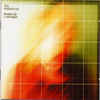THE WALKABOUTS : ENDED UP A STRANGER
- Lazarus Heart
- Radiant
- Life: The Movie
- More Heat Than Light
- Fallen Down Moon
- See It In The Dark
- Mary Edwards
- Lest We Forget
- Winslow Place
- Cul-de-Sac
- Incidento
- Climb
- Ended Up A Stranger
Label : Innerstate Records
Length : 64:56
Release Year : April 23, 2002
Quality : Soundboard Recording (A+)
Review (AllMusic) : For the past 17 years, Carla Torgerson, Chris Eckman from the Northwest corner of the United States, and a revolving cast of players have crafted albums of fine, independent gothic (as in Flannery O'Connor and William Faulkner, not Bauhaus) American music and have influenced countless bands along the way, many of whom are too foolish to acknowledge their influence. Counting bootlegs and mail-order issues, they have issued no less than 15 albums and countless singles and EPs for labels such as Virgin, Glitterhouse, Sub Pop, and others, without receiving a whit of popular acclaim. Yeah, critics love them, so what -- they can't make a living on what critics write. The bottom line is that this band crafts exquisite songs from the shadowy side of the American experience, and Ended Up a Stranger offers evidence aplenty. The opener is the gorgeous "Lazarus Heart," where a string quartet and a skittering drum kit usher in a weary protagonist who cannot even recount her stories in full, but instead just gives impressions, like flashes of light along a boulevard at night: "I keep crashin'/Into parked cars/Waitin' for a horse/And it's blue rider/Followed you that night/You tasted lucky/We staggered blessed/Your scars they...matches, my dress/Never mind/The happy ending...Lazarus heart, Lazarus heart/ We forget/We risk/We're tired/We're true/Veils and whispers/Rivers of ether." Torgerson is haunted and resigned; she's been here before and knows that tomorrow the cycle begins again without the hint of a different direction, but she holds out, like Beckett, for that one glimmer where everything can change on a dime. But as the songs droop from their structures like a lazy, dark weeping willow in August, the sadness and shadows grow deeper. On songs such as "More Heat Than Light,"Eckman sings, "There are moments of grace in the heat of the chase/But it's more heat than light." Guitars shimmer in the distance and an organ crawls in from the margins as Eckman becomes more weary than Leonard Cohen, yet is just as determined to hold on to the song. As the drums and electric guitars come in waves, he struggles to hold the seam where his resignation and his cursed optimism hold him hostage. On "Fallen Down Moon," a slippery folk song touches the trace edge of an old, Spanish flamenco melody in stutter-step 4/4 time: "There's a love that will cut us in two/First we're wild/And then we drink...Makin' out with Judas/Just to make your bail/We do sh*t like that/Just before we crack/But there's splendor in the cracks/And gold in the darkest blue/I dreamed you're comin' back/I dreamed I'd wait for you/But I'm getting' tired of dreamin'/Fallen down moon/Everything goes wrong...We lose for our own good...We break the best when nothin's left." The strings hold up her vocal, carrying it over Eckman's guitar solo and the ceremonially played drum kit. There it is, the moment of defeat that continues inside a life, or inside of lives. Rock & roll meets the place where the crossroads offer nothing more than a choice between nothing and nowhere. But in music like this, beauty lies in the willingness to make that choice anyway, to choose the poetry and confession and sordid revelation rather than suffer it alone for no purpose. Guitars, drums, strings, organs, pianos, and horns braid together in a weave that accurately reflects back the jagged shards of pain and shimmering, heat-mirage shadows of lives passing at the margins of the abyss, as in the R&B swagger that infects "See It in the Dark"; it doesn't matter where the roads lead as much as that they head down to somewhere and are traveled by a gang that includes the musicians, their protagonists, and their listeners. The album ends with the title track, and here the double-edged sword reveals the fineness of the slash once again, because it's the only thing left worthy of praise. In a slow, sparse, plodding tempo -- in fact, one that almost doesn't exist -- Eckman reveals the sum total of a night spent restlessly roaming through his own space, a ghost in the house of his own life as he records the sounds of his stomping grounds through a microphone out the back window of his car: "Lord, I've become a stranger... in my old haunts." The moment the last syllable drops from his lips, a screaming, slow electric guitar punches the space though; it's a wail of pain buffered only by an accordion holding the bottom space. And though the seam of the track is broken and glass is falling everywhere, he continues: "Hello desire/And what your spooky name/Implies/In you, I found my silk/And swagger/The calm before the prize/And though I, once was warned/You'd be the grave in which I'd lie/With you, I was no stranger...in my old haunts/Someday I'll hit the turnpike/Speed past a truck stop burnin'...and I'll listen to these tapes I've made/My symphony of phantoms." Another guitar screams here, with strings and drums and bass and an almost unrestrained wail cutting through the mix without such a clean slash, leaving tears and bloodlines everywhere and the sound of ghosts to fade it to black. While the Walkabouts have never made a weak record, nor even a mediocre one, Ended Up a Stranger may be their magnum opus, a record so fine, so darkly beautiful and intoxicatingly forlorn and shadowy in its streaked grays and blues, that it almost defies praise.
